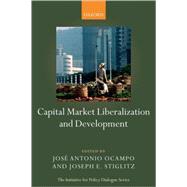
Note: Supplemental materials are not guaranteed with Rental or Used book purchases.
Purchase Benefits
What is included with this book?
| List of Figures | p. ix |
| List of Tables | p. xi |
| Capital Market Liberalization and Development | p. 1 |
| The Benefits and Risks of Financial Globalization | p. 48 |
| Capital Market Liberalization, Globalization, and the IMF | p. 76 |
| From the Boom in Capital Inflows to Financial Traps | p. 101 |
| Capital Market Liberalization and Poverty | p. 121 |
| Capital Management Techniques in Developing Countries: Managing Capital Flows in Malaysia, India, and China | p. 139 |
| The Role of Preventative Capital Account Regulations | p. 170 |
| The Malaysian Experience in Financial-Economic Crisis Management: An Alternative to the IMF-Style Approach | p. 205 |
| Domestic Financial Regulations in Developing Countries: Can They Effectively Limit the Impact of Capital Account Volatility? | p. 230 |
| The Pro-Cyclical Impact of Basel II on Emerging Markets and its Political Economy | p. 262 |
| Consequences of Liberalizing Derivatives Markets | p. 288 |
| Do Global Standards and Codes Prevent Financial Crises? | p. 319 |
| Glossary | p. 355 |
| Acronyms | p. 364 |
| Index | p. 365 |
| Table of Contents provided by Ingram. All Rights Reserved. |
The New copy of this book will include any supplemental materials advertised. Please check the title of the book to determine if it should include any access cards, study guides, lab manuals, CDs, etc.
The Used, Rental and eBook copies of this book are not guaranteed to include any supplemental materials. Typically, only the book itself is included. This is true even if the title states it includes any access cards, study guides, lab manuals, CDs, etc.